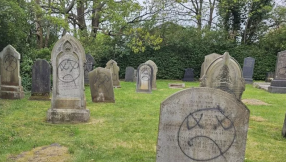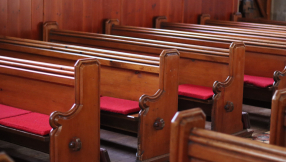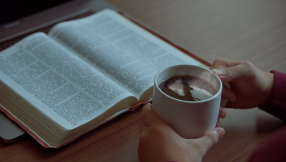Anglican-Methodist Cooperation 'Stalled'
"This report [by the Joint Implementation Commission (JIC), which monitors and promotes the implementation of the Anglican-Methodist Covenant, is very encouraging and there is clearly a lot of good work going on, with Anglicans and Methodists sharing in worship and mission, caring for each other and serving their communities," said the Rev Peter Sulston, coordinating secretary for Unity in Mission for the Methodist Church and co-convenor of the JIC. "But there is still much more to be done."
At their annual meeting last week, the Methodist Conference received a second report from the JIC on the Anglican-Methodist Covenant, which was signed in November 2003. The JIC reported some encouragements and disappointments.
While the covenant is being lived out at the grassroots level through mission and ministry works between the Church of England and the Methodist Church of Great Britain, current conflicts within the Church of England and between the two church bodies seem to have stalled the covenant's progress.
"It seems [the covenant] is stalled at the moment when US United Methodist and Episcopal relations are going forward," said Bishop William Oden, a representative to the Methodist Conference, which took place in Blackpool. "The Church of England is busy with other issues, and British Methodists seem to have backed off."
The Anglican-Methodist Covenant was signed on 1 November 1 2003, setting the Church of England and the Methodist Church of Great Britain on a path of ever-deepening relationships and mutual trust and cooperation. The two churches had entered the covenant after several years of conversations.
It was signed as Anglicans worldwide faced mounting tensions and divisions and a day before the Episcopal Church - the US branch of Anglicanism - made the highly controversial move of consecrating its first openly gay bishop, V Gene Robinson of New Hampshire.
Archbishop of Canterbury Dr Rowan Williams, who signed the covenant with two other Anglican leaders on behalf of the Church of England, had called it an irony that day for the celebration of a new mutuality while Anglicans faced divisions.
"But perhaps this celebration is timely after all in God's purpose," he said at the time.
Divisions in the worldwide Anglican Communion have deepened to the point of a predicted schism as conservative Anglicans continue to demand true repentance from the Episcopal Church. Episcopal leaders in the United States, however, have indicated they will not be moving "backward" on their recent controversial actions.
As United Methodist Bishop Oden expressed concern over the covenant's progress, Anglicans and Methodists had also yet to reach a formal agreement on the role of women in church leadership and the role of bishops. The Methodist Church has no bishops.
Nevertheless, Sulston noted that "the passion for mission and evangelism expressed by both churches is a powerful driver for covenant living".
According to Oden, a delegation involved with the United Methodist-Episcopal dialogue in the United States is scheduled to meet in October in Britain with their British Methodist and Anglican counterparts.













